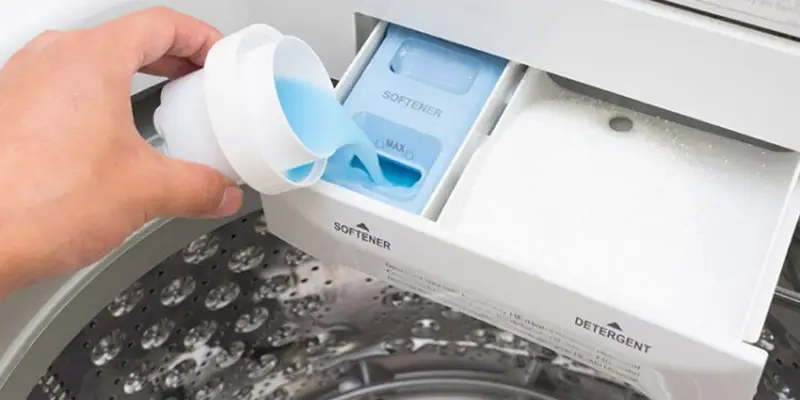In recent months, a significant concern has emerged in the laundry aisle: a popular brand of fabric softener has been recalled due to the discovery of a cancer-causing chemical. This alarming news has prompted consumers to rethink their laundry products and has raised questions about safety regulations in household goods. In this article, we will explore the details of the recall, the implications for consumers, and steps you can take to protect yourself and your family.
The Recall Announcement
In [insert date], [Brand Name] announced the recall of several batches of their fabric softener after tests revealed the presence of diethylhexyl phthalate (DEHP), a chemical linked to cancer and reproductive harm. DEHP is commonly used to make plastics more flexible and durable but is also known for its potential health risks.
The recall affects various product lines, including popular fragrances and formulations. Consumers are advised to check the product codes and expiration dates on the packaging. The [regulatory body, e.g., the Consumer Product Safety Commission (CPSC)] issued a public safety alert, urging those who have purchased the affected fabric softeners to stop using them immediately and return them for a full refund.
Health Risks Associated with DEHP
DEHP is classified as a possible human carcinogen and has been linked to several health issues, including:
- Hormonal Disruption: Phthalates like DEHP can interfere with endocrine functions, potentially leading to reproductive health issues in both men and women.
- Developmental Concerns: Exposure during pregnancy may pose risks to fetal development, leading to long-term health implications for children.
- Increased Cancer Risk: Studies have shown a correlation between long-term exposure to DEHP and various forms of cancer, particularly in laboratory animals. While more research is needed to fully understand its effects on humans, the findings are concerning.
The Regulatory Landscape
The recall has reignited discussions about the regulation of chemicals in consumer products. While DEHP has been banned or restricted in many applications, it can still be found in certain household products. The FDA and EPA have guidelines regarding the use of phthalates, but enforcement and oversight can vary.
Consumer advocacy groups have long urged for stricter regulations on harmful chemicals in everyday products. This incident highlights the need for greater transparency and rigorous testing protocols in the manufacturing process.
Consumer Response
Following the recall announcement, many consumers expressed their outrage on social media platforms. Comments ranged from disappointment in the brand to concerns about the safety of other household products. Many are now more vigilant about reading labels and researching the ingredients in their laundry products.
For those affected by the recall, [Brand Name] has set up a dedicated hotline and website to assist with the return process. Consumers are encouraged to report any adverse reactions or experiences related to the recalled products.
Alternatives to Traditional Fabric Softeners
With growing awareness of the potential dangers associated with fabric softeners, many consumers are exploring alternatives. Here are some safer options to consider:
- Vinegar: Adding a cup of white vinegar to the rinse cycle can soften fabrics and eliminate static without harmful chemicals.
- Baking Soda: This natural ingredient can help soften fabrics and enhance detergent performance.
- Wool Dryer Balls: These reusable balls can reduce drying time and soften clothes without added chemicals.
- Commercial Alternatives: Look for brands that explicitly state they are free from phthalates and other harmful substances. Certifications like “Green Seal” or “EPA Safer Choice” can guide you toward safer options.
Bottom Line
The recall of fabric softeners containing the cancer-causing chemical DEHP serves as a stark reminder of the potential dangers lurking in everyday household products. As consumers become more aware of the implications of their choices, it’s essential to stay informed about the products we use and advocate for safer alternatives.
If you have purchased the recalled fabric softener, stop using it immediately and follow the manufacturer’s guidelines for returns. Additionally, consider exploring safer alternatives that prioritize your health and well-being. By making informed choices, we can contribute to a safer environment for ourselves and future generations.
As discussions about product safety continue, consumer vigilance and advocacy will be crucial in pushing for better regulations and safer products in our homes.
